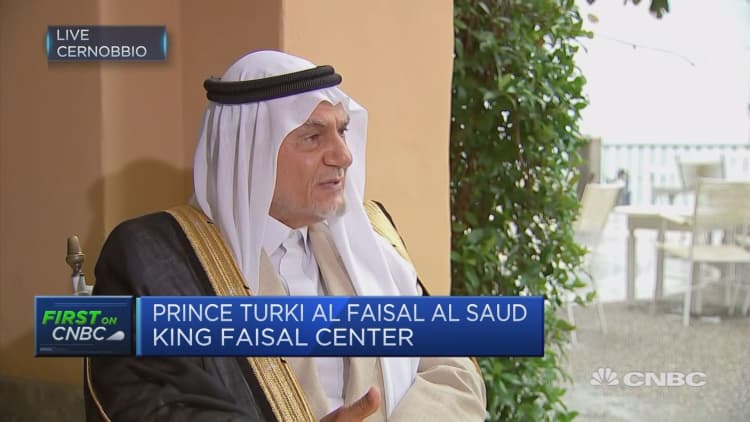
The United Nations has become unfit for purpose as it insists on attempting to fix the world's problems as if it were 1945, an influential member of the Saudi royal family told CNBC.
"We are still dealing with the world today as it was dealt with in 1945. We have seen the breakdown of the Soviet Union, we've seen the rise of China, we've seen various other developments on a global scale and of course the population has more than tripled … So we need to readjust the way we do things," Prince Turki al Faisal, who is the former head of Saudi Arabian intelligence, said on the sidelines of Ambrosetti Forum.
When asked whether he would describe the UN as no longer fit for purpose, especially given the complex challenges the world now faces in the 21st century, Prince Turki replied: "I am not the only one who is saying that."
He added that the UN has been trying to reform in order to become a more responsive body since Kofi Annan began his residency as secretary general in 1997. However, he lamented the apparent reluctance from the five permanent members of the UN Security Council (UNSC) to evolve.
The five founding members of the UN Charter are the only members of the UNSC with the power to veto proposed resolutions. The U.S., U.K., China, Russia and France are the only nations to possess this "right to veto."
"Unfortunately, because of power politics (and) entrenched privileges that particularly the (UN) veto members enjoy that has not yet come to fruition. So I think the veto members more than anybody are responsible for stymying the improvement and realignment of the United Nations to make it more effective," he said.



